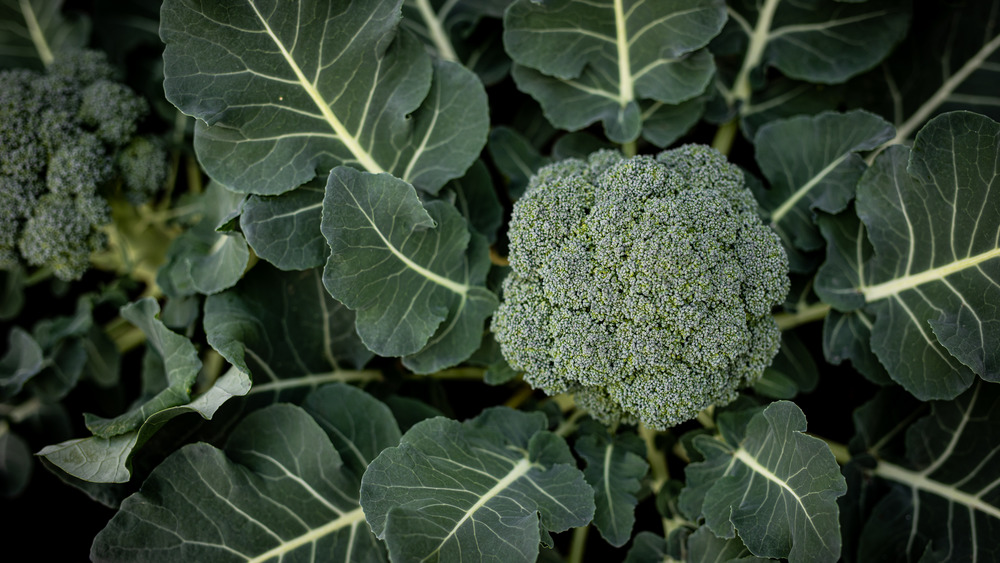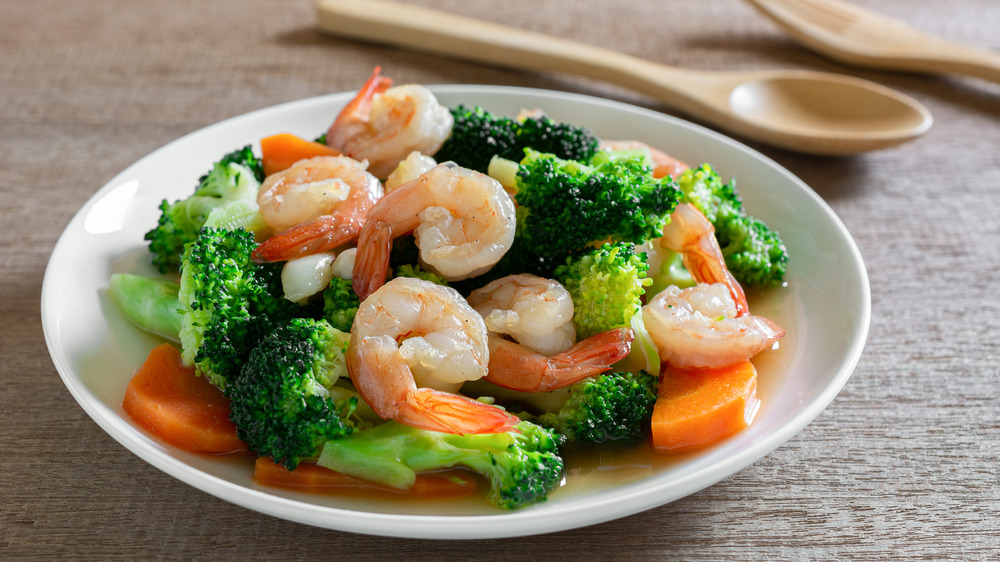Raw Broccoli Vs Cooked Broccoli: Which Is Better?
On average, Americans eat more than four pounds of broccoli per person a year (via Live Science). While you're wondering who could be sneaking 3.9 pounds of broccoli into your food each year, you should also consider thanking them. Broccoli is loaded with all kinds of nutrients and is even able to fight cancer.
Sure, the people at the Harvard School of Public Health will tell you the term "superfood" was invented by marketers, not scientists. Even so, their friends at Harvard Medical School have put broccoli on their list of superfoods. Broccoli boasts healthy amounts of vitamin C, fiber, calcium, and folate. But broccoli's biggest benefit comes from sulforaphane, a "very potent antioxidant" that can prevent cancer, nutritionist Victoria Jarzabkowski told Live Science.
To get the full benefit of cancer-fighting sulforaphane, should you cook broccoli or eat it raw? Let's step back and take a closer look at what's going on. Broccoli doesn't come off the stalk loaded with sulforaphane. Broccoli and its cruciferous cousins – cabbage, cauliflower, kale, and others – are full of glucosinates and an enzyme called myrosinase (via Scientific American). The enzyme turns the glucosinates into the stuff that's really good for you – sulforaphane. In addition to killing off precancerous cells, sulforaphane also attacks a type of bacteria associated with ulcers and stomach cancer. Other studies have even shown that sulforaphane reduces the effects of diabetes and autism.
Scientists found a way to stir-fry broccoli and keep nutrients intact
Consumer Reports explains that the enzyme myrosinase is able to get together with the glucosinolates while you chew, or if you chop up the broccoli before eating. But if you apply too much heat to the broccoli for too long, you'll destroy the enzyme. Boiling is especially bad, according to the American Institute for Cancer Research, because it leeches out water-soluble nutrients such as folate, vitamin C, and even the glucosinolates. On the other hand, the AICR says you can boost the cancer-fighting compounds by blanching the broccoli – in other words, giving it a quick boil and then an ice bath. Additionally, the enzymes won't be harmed too much if you steam for three to four minutes only, or microwave for less than one minute.
A team of Chinese researchers found you can get away with stir-frying broccoli and still enjoy the benefits of sulforaphane (via ScienceAlert). The food scientists chopped some broccoli extra-fine, to activate as much of the myrosinase-glucosinolate interaction as possible, then compared sulforaphane levels in broccoli that was stir-fried immediately after chopping, and another batch that was stir-fried 90 minutes after chopping. The broccoli that sat for a while had almost three times as much of the good sulforaphanes as the chopped broccoli that was cooked right away. The researchers said that you could probably get away with shortening that 90-minute wait time and still get the cancer-fighting benefit of broccoli.

